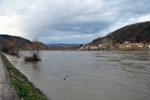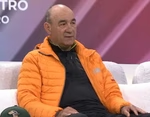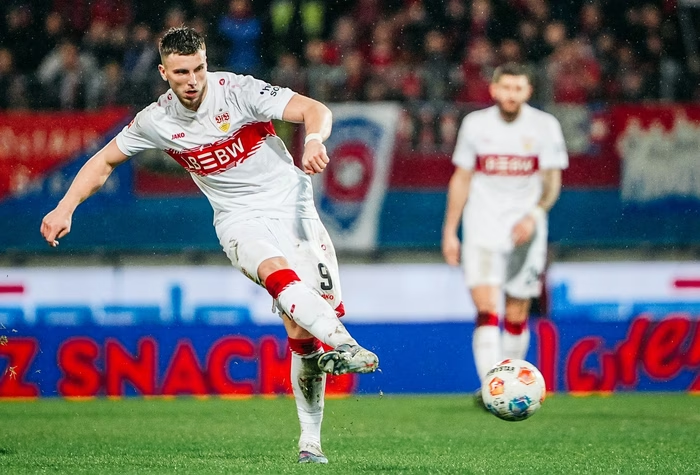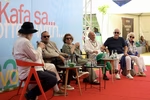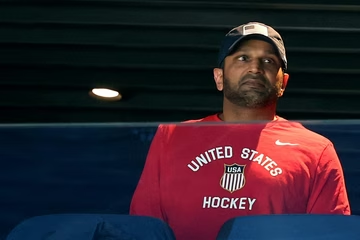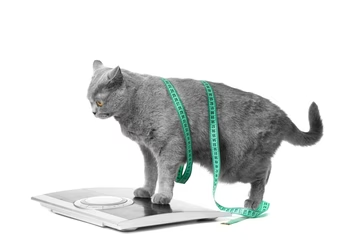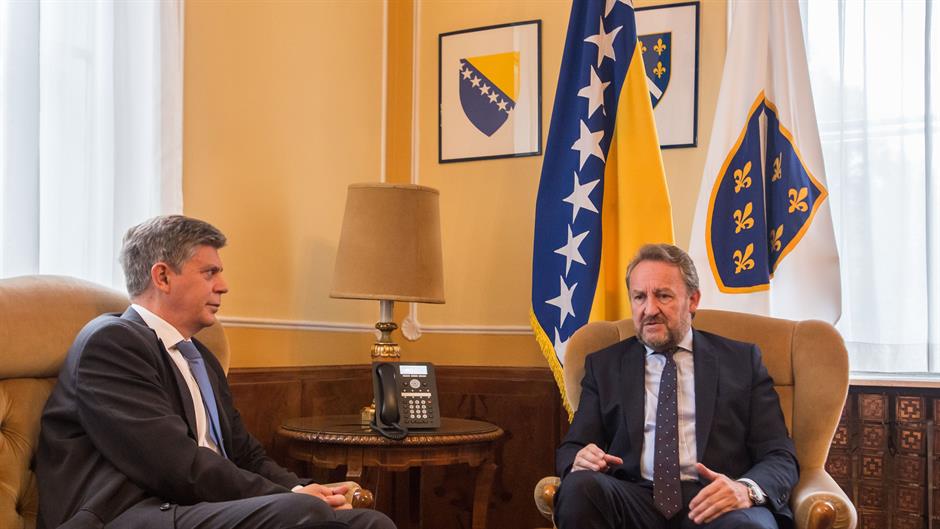
Implementation of the election results is paramount and everybody should work toward forming new governments as soon as possible in order to ensure the country’s stability and progress, the Bosniak member of the tripartite Presidency said after meeting with the EU envoy to Bosnia on Monday.
Current Chairman of Bosnia’s Presidency, Bakir Izetbegovic, discussed the situation in the country following the October 7 General Election with the head of the EU Delegation to Bosnia, Lars-Gunnar Wigemark.
It is necessary to form a wide coalition of winning parties which would implement necessary reforms and accelerate the country’s path toward NATO and the EU, Izetbegovic said. Reforms addressing stabilisation, the fight against corruption, building infrastructure and defining a special programme for keeping youth in Bosnia should be prioritised, he said.
In a Monday interview with local outlet Faktor, Izetbegovic also said that “no serious politician” in the EU will support the objections regarding the election results raised by the Croat Democratic Union and Croatia’s Prime Minister at a recent EU summit.
Bosnia’s Presidency is composed of three members, each representing one of the three majority ethnic groups living in the country - Bosniaks, Croats and Serbs. The country is also composed of two semi-autonomous entities, the Bosnian Serb-majority Republika Srpska (RS) and the Federation (FBiH), shared by Croats and Bosniaks. While the Serb presidency member is elected from the RS, the Bosniak and Croat members are elected from the FBiH.
The Croatian Democratic Union (HDZ) is the ruling party in Croatia and has a sister party in Bosnia. The leader of Bosnia’s HDZ is Dragan Covic, who lost his bid for reelection in Bosnia’s Presidency to the leader of a multiethnic party, Zeljko Komsic.
Since there are many more Bosniaks than Croats in the Federation, Bosnian Croat representatives, particularly those of the Croat Democratic Union (HDZ), have been complaining that Bosniaks are able to elect the Bosnian Croat member and that they did so to help Komsic win.
Bosnian Croat politicians and Croatia’s top officials intensified calls for the Election Law in Bosnia to be changed in order to avoid this from happening again.
Croatia’s Prime Minister, Andrej Plenkovic, raised the issue of the results of Bosnia’s October 7 General Election at an EU summit on Thursday. He said that the equality of Croats in Bosnia is compromised as they can not elect their own representatives because Bosniaks are numerically superior.
Izetbegovic, however, said that all attempts to change the Election Law and bring it in line with European standards were rejected by Bosnia’s HDZ.
According to Izetbegovic, “no serious European politician will support concepts that are in collision with the basic democratic principle of free candidacy and choice.”
“Mono-ethnic electoral units which the HDZ is advocating, the electoral model which would divide voters based on ethnicity and ban them from voting for a candidate of another ethnic group, is at its core anti-democratic and anti-European, and will never be supported by the EU,” Izetbegovic said.
Kakvo je tvoje mišljenje o ovome?
Učestvuj u diskusiji ili pročitaj komentare





 Srbija
Srbija
 Hrvatska
Hrvatska
 Slovenija
Slovenija












